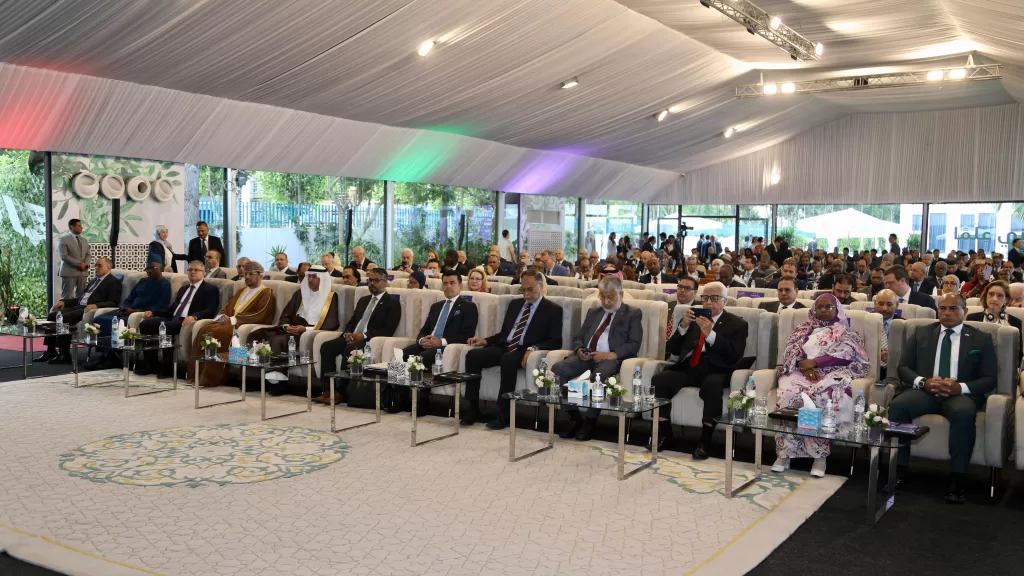
Sixth Edition of Vice Chancellors’ Forum Kicks Off at ICESCO Headquarters
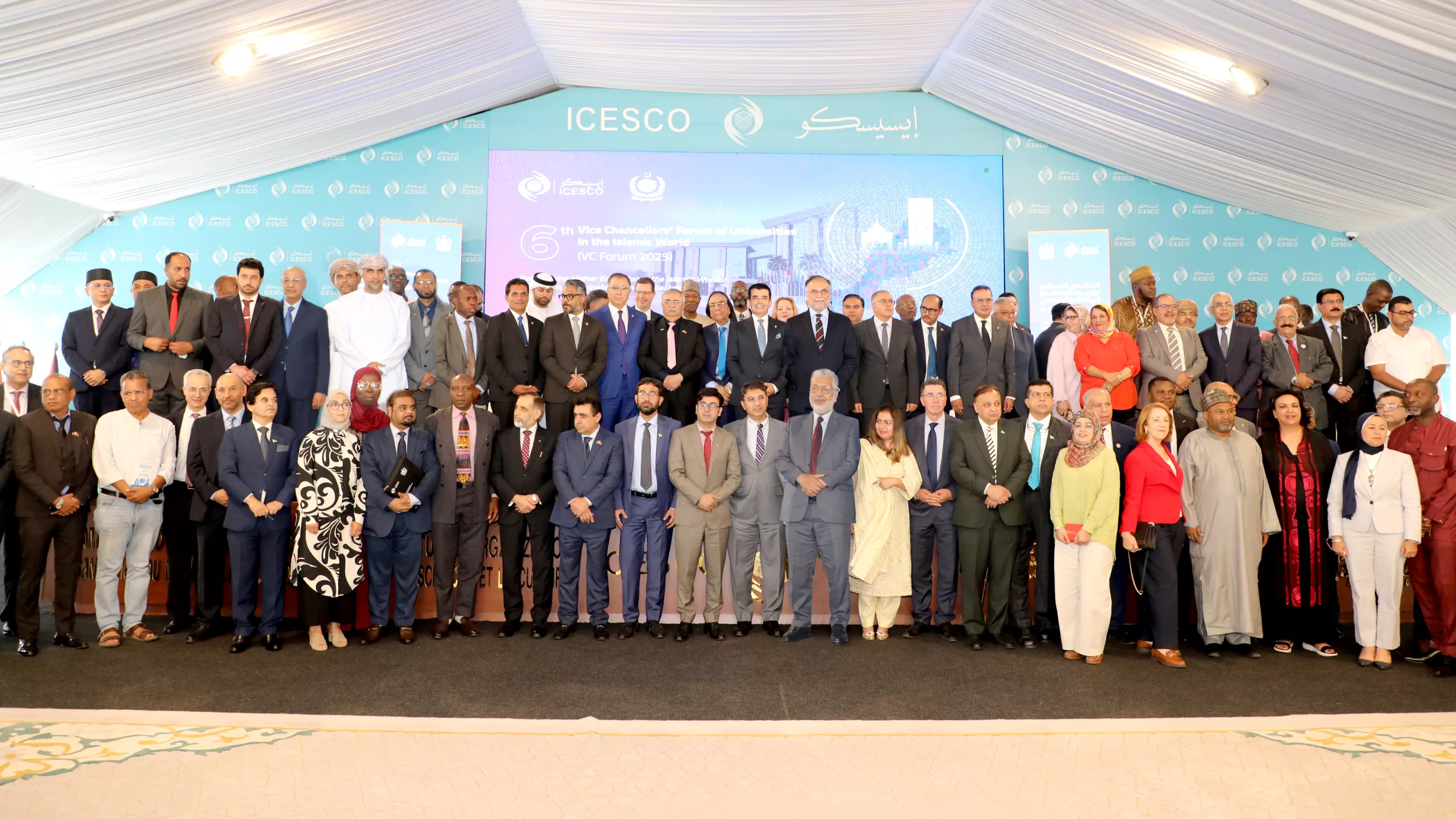
24 June 2025
The sixth edition of the Vice Chancellors’ Forum of Universities in the Islamic World kicked off at the headquarters of the Islamic World Educational, Scientific and Cultural Organization (ICESCO) in Rabat, on Monday, 23 June 2025. The event was organized in partnership with the Higher Education Commission of the Islamic Republic of Pakistan (HEC), and in collaboration with the Federation of the Universities of the Islamic World (FUIW) and Baku State University in Azerbaijan, under the theme: “Reimagining Higher Education in the Islamic World: Innovation, Sustainability, and Global Impact.”
The two-day forum brings together high-level participants, including several ministers and approximately 150 distinguished university vice chancellors, deans, and vice-deans from higher education institutions across the Islamic world. Discussions focus on the future of higher education, artificial intelligence, open and distance learning (ODL) systems, and the role of public funding and resource mobilization in achieving the concept of sustainable universities.
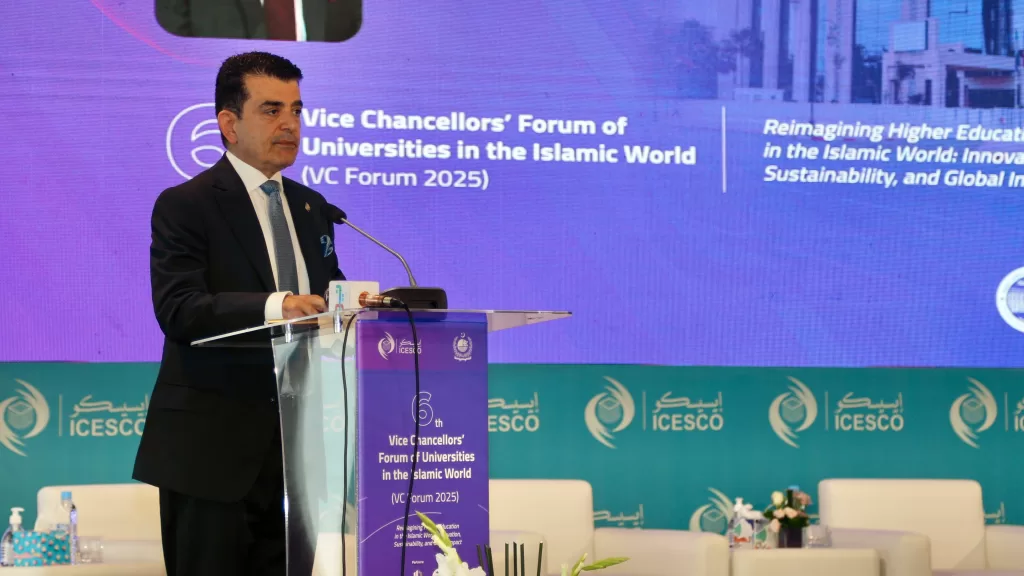
The opening session began with a recitation from the Holy Quran, followed by a speech by Dr. Salim M. AlMalik, ICESCO Director-General, who affirmed the Organization’s commitment to strengthening academic partnerships at regional and international levels, promoting scientific research, and encouraging student mobility. Dr. AlMalik emphasized that the sixth edition of the Forum offers an effective platform for building resilient universities that serve both students and society, especially in light of pandemics, climate change, conflicts, and rapid technological developments that have pushed universities to become spaces of resilience.

Moreover, Dr. AlMalik explained that by 2030, many jobs will be replaced by new ones in fields such as data science, cybersecurity, digital ethics, and intelligent systems. This shift requires universities in the Islamic world to respond and take the lead by developing curricula that prepare learners to adapt to a world shaped by algorithms, automation, and AI applications.
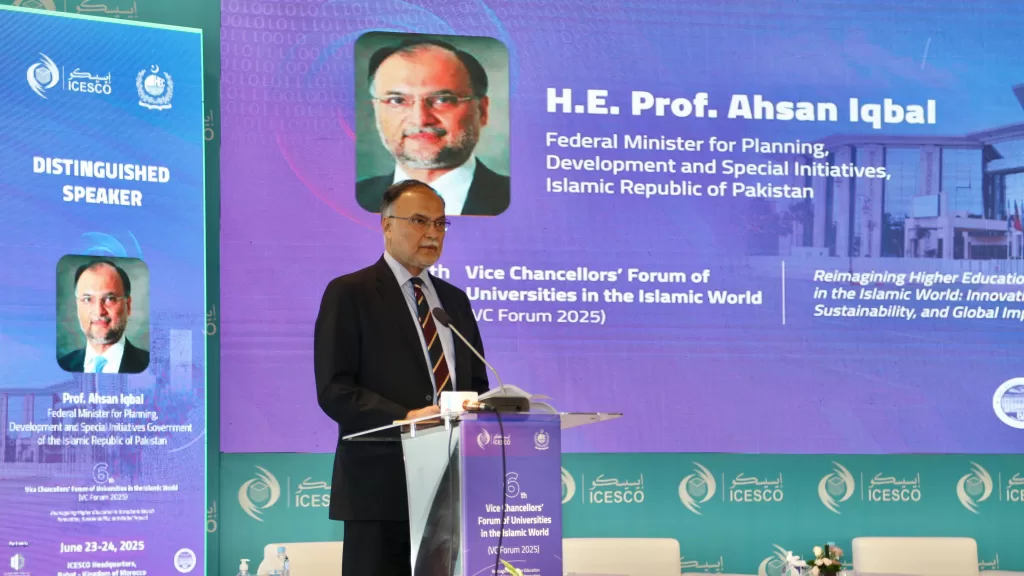
For his part, Prof. Ahsan Iqbal, Pakistan’s Federal Minister for Planning, Development and Special Initiatives, highlighted the importance of keeping pace with 21st-century driving forces such as artificial intelligence and climate change to shape the future. Prof. Iqbal noted that innovation is now the force reshaping industry, economies, and the global standing of nations, adding: “History teaches us that countries that fail to invest in minds will inevitably fall behind those that do.”

In his remarks, Dr. Mukhtar Ahmed, Chairman of Pakistan’s Higher Education Commission, announced Pakistan’s pledge to offer over 1,300 scholarships to youth from the Islamic world under a joint programme developed in collaboration with ICESCO. The initiative aims to equip youth with the necessary skills to become scientists and leaders contributing to their countries’ development.

In a recorded statement, Ms. Amina Mohammed, Deputy Secretary-General of the UN and Chair of the UN Sustainable Development Group, stressed that the current global context, marked by escalating climate crises and widening inequality, requires a fundamental rethinking of how we prepare for the future.
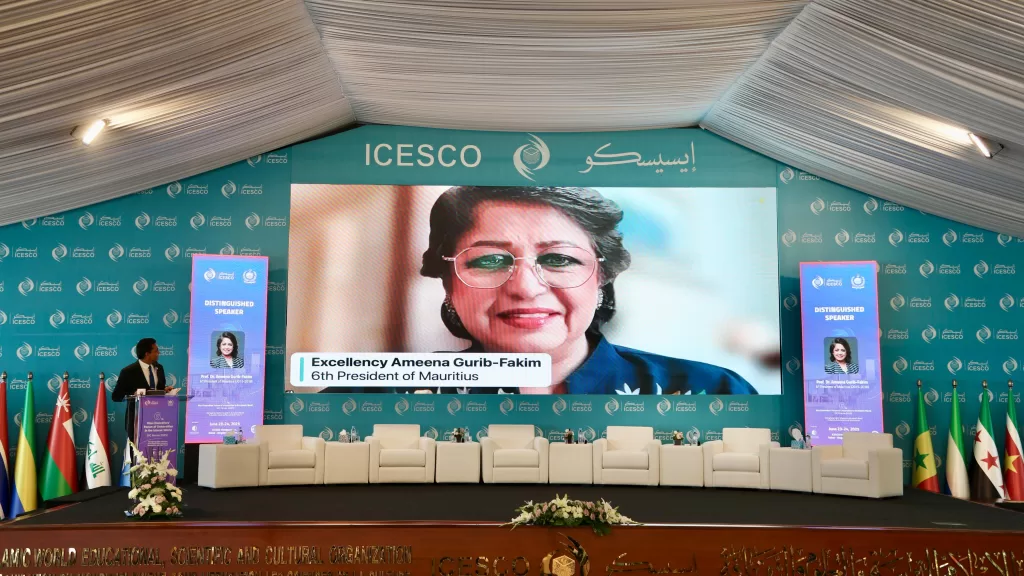
Following this, Ms. Ameenah Gurib-Fakim, Former President of Mauritius, emphasized the critical role universities play in graduating future leaders and contributing to societal development by applying scientific research and translating it into tangible outcomes.

The Forum’s sessions began with a ministerial panel on the future of higher education, artificial intelligence, and distance learning, featuring the participation of Prof. Ahsan Iqbal, Pakistan’s Federal Minister for Planning, Development and Special Initiatives; Mr. Saleh Al Ghoul, Undersecretary of the Ministry of Higher Education of Libya; Dr. Mukhtar Ahmed, Chairman of HEC; Dr. Lidia Borrell-Damián, Secretary General of Science Europe; and Mr. Munim Anees, Minister of State for Higher Education in the Maldives.
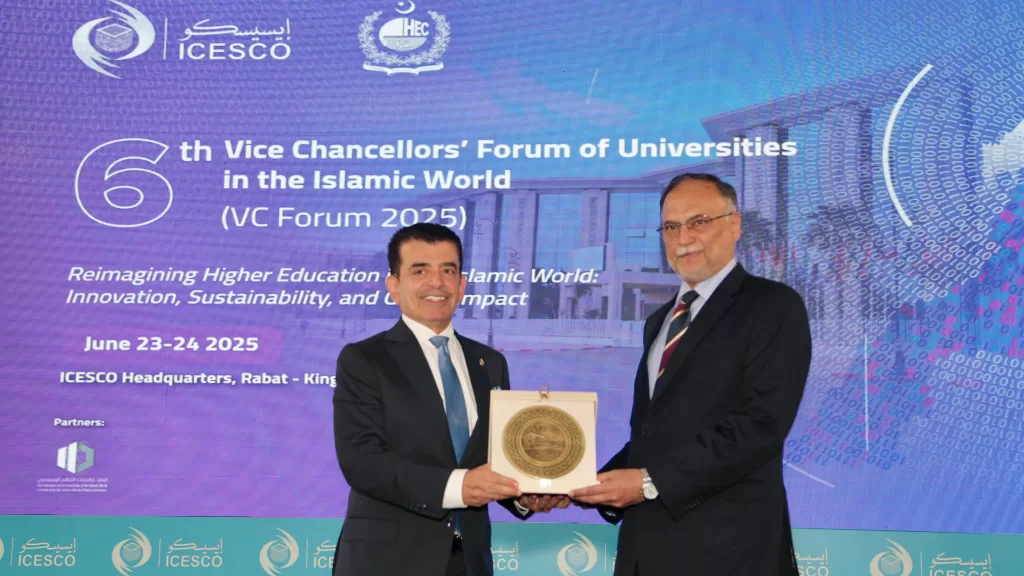
On the sidelines of the Forum, three academic memoranda of understanding were signed. The first was between the Federation of the Universities of the Islamic World, under ICESCO, and Foundation University Islamabad (FUI); the second between FUI and Cadi Ayyad University in Morocco, to promote knowledge exchange and joint scientific research; and the third between Khartoum’s Al Neelain University and FUI, to strengthen academic cooperation between the two institutions.
